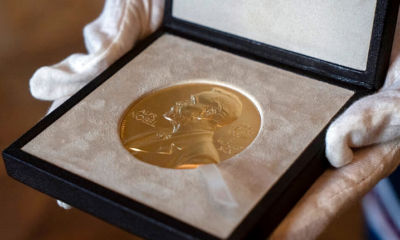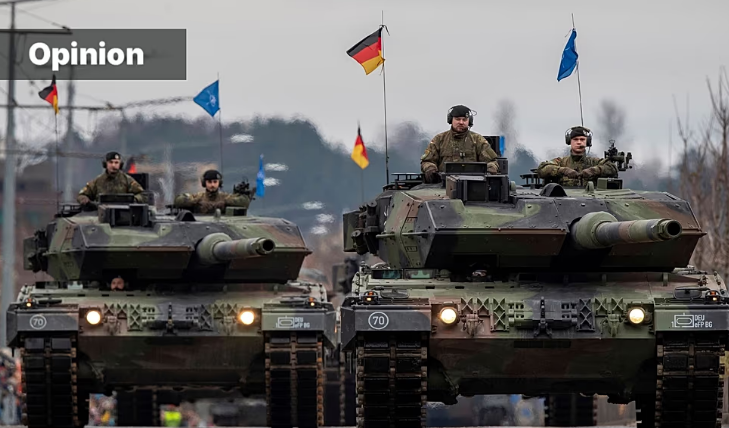News
Colombian Presidential Candidate Miguel Uribe Turbay in Critical Condition After Assassination Attempt in Bogotá
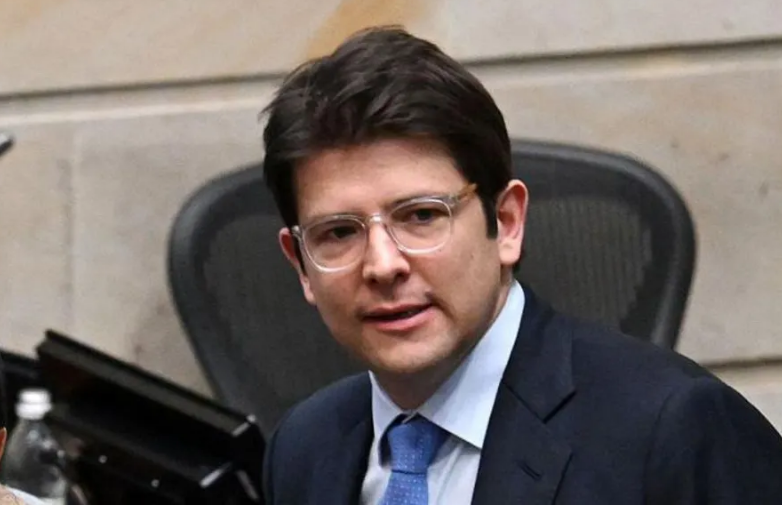
Colombian senator and presidential candidate Miguel Uribe Turbay is in critical condition after being shot three times, including twice in the head, during a campaign rally in Bogotá on Saturday. The 39-year-old was attacked while addressing supporters in a public park in the capital’s Fontibón district.
According to police, a 15-year-old suspect was apprehended at the scene and taken into custody. Authorities have not yet confirmed the motive behind the shooting.
Footage shared on social media appears to show the moment Uribe Turbay was struck mid-speech, triggering panic and chaos as the crowd dispersed. Emergency responders on the scene said the senator had been shot in the head and knee before being airlifted to a nearby hospital. A large crowd of supporters gathered outside the medical facility to hold a vigil as he underwent emergency surgery.
Uribe’s wife, María Claudia Tarazona, called on the nation to pray for his recovery. “Miguel is currently fighting for his life,” she said in a statement. “Let us ask God to guide the hands of the doctors who are treating him.”
Uribe’s party, the right-leaning Centro Democrático, condemned the attack, describing it as a direct assault on Colombia’s democracy and freedom. The party, founded by former President Álvaro Uribe (no relation), has positioned itself as a strong opposition voice to the current administration.
President Gustavo Petro’s government also denounced the shooting in strong terms. “This is an act of violence not only against a person, but against democracy itself,” the presidency said in a statement. In a televised address, Petro urged Colombians to unite in support of Uribe’s recovery. “What matters most today is that Dr. Miguel Uribe stays alive,” he said, calling it a “day of pain” for the country.
Defence Minister Pedro Sanchez called the shooting a “vile attack” and announced a substantial reward for information leading to those responsible. International condemnation followed quickly, with U.S. Secretary of State Marco Rubio labeling the incident a “direct threat to democracy.” Rubio also blamed what he called “violent leftist rhetoric” for fueling political tensions, though he did not cite specific examples.
Uribe Turbay is a rising figure in Colombian politics and a vocal critic of the Petro administration. He announced his candidacy for the 2026 presidential election last October and has served in the Senate since 2022. He comes from a well-known political family. His mother, journalist Diana Turbay, was kidnapped and killed in 1991 during a failed rescue mission while being held by the Medellín drug cartel led by Pablo Escobar.
Colombia is set to hold presidential elections on May 31, 2026. The attack on Uribe has intensified national debate over political violence and security in the run-up to the vote.
News
New Tashkent Aims to Redefine Urban Living with Sustainability and Smart Infrastructure
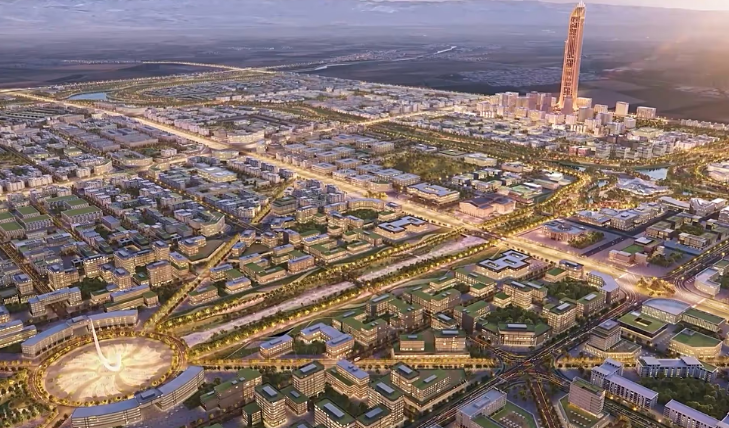
Uzbekistan is moving forward with an ambitious plan to reshape its capital with the “New Tashkent” project, a purpose-built city designed to meet the demands of rapid population growth while promoting sustainability and modern urban living. Launched in March 2023 under Tashkent’s Master Plan through 2045, New Tashkent is planned to cover 20,000 hectares between the Chirchik and Korasuv rivers, positioning it as a major new urban hub rather than a suburban extension.
The city is expected to accommodate around 2 million residents and generate 200,000 high-income jobs driven by technology and innovation. It will feature smart-city innovations, modern amenities, and buildings built to international green standards, ensuring energy efficiency, climate resilience, and healthy living environments.
Urbanization pressures in Uzbekistan are mounting. By mid-2025, more than 19.3 million people, roughly 51 percent of the population, are projected to live in urban areas, compared with 18.6 million in rural regions. Tashkent itself officially has 3.1 million residents, but daily numbers may be 30–35 percent higher when including students and internal migrants. The concentration of 98 universities in the city continues to draw young people, intensifying demand for housing, transport, and social services.
Sustainability is central to New Tashkent’s design. Buildings will adhere to internationally recognised standards such as LEED, BREEAM, and EDGE, promoting energy efficiency, water conservation, and the use of sustainable materials. Green roof technology, rainwater collection systems, and other measures aim to reduce energy demand and improve resilience to climate extremes. The city’s energy infrastructure includes existing hydropower, a 400-megawatt solar farm, a new 100-megawatt solar installation, and a tri-generation facility converting waste into electricity and heat. Experts estimate that even modest efficiency gains could save over 900 million kilowatt-hours annually.
Transport planning is integral to the project. A 21-kilometre metro line will connect New Tashkent to the capital, while tram lines and eight multimodal transfer hubs will allow seamless switching between metro, tram, buses, bicycles, and scooters. The city is being designed around the 15-minute city concept, making walking, cycling, and public transport convenient for residents.
Urban planners are using a radial city model to prioritize walkability and access to services. Green infrastructure, parks, riverfronts, and cycling lanes will be integrated to create a connected, pedestrian-friendly environment. A cultural island at the intersection of artificial canals will serve as a social and recreational focal point, while the city’s waterways and green spaces will foster a comfortable microclimate.
By the end of 2025, construction had reached 3 million square metres. Several ministries have started operations from temporary facilities, and infrastructure projects include a €86 million underground parking facility with automated systems, bicycle rentals, and EV charging stations. Residential development includes the 95-hectare Sharq Bahori complex for 15,000 households, while New Uzbekistan University is being built to serve 10,000 students. A 55,000-seat FIFA-standard stadium is under construction ahead of the 2027 U-20 World Championship, which Uzbekistan will co-host with Azerbaijan.
New Tashkent is positioned as a blueprint for sustainable urban development in Central Asia, combining technology, green infrastructure, and strategic planning to support Uzbekistan’s rapidly growing urban population.
News
EU Faces Urgent Defence and Economic Challenges Amid US Power Imbalance
News
Venezuelan Opposition Leader María Corina Machado Presents Nobel Medal to Trump at White House
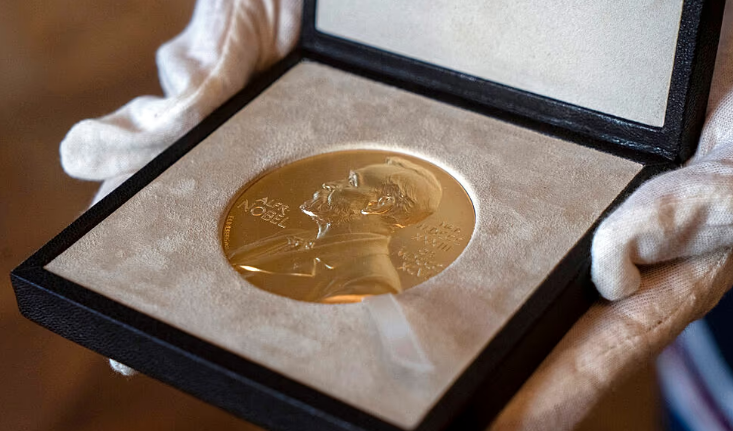
In a rare move, Venezuelan opposition leader María Corina Machado presented her 2025 Nobel Peace Prize medal to former US President Donald Trump at the White House on Thursday, describing the gesture as “recognition for his unique commitment to our freedom.”
Machado was awarded the Nobel Peace Prize for her leadership of Venezuela’s opposition during a crackdown by President Nicolás Maduro, particularly surrounding the controversial 2023 presidential election. Her visit to Washington came shortly after a US military operation on 3 January resulted in Maduro’s capture. The former Venezuelan leader and his spouse now face drug trafficking charges in New York.
“I presented the president of the United States the medal, the Nobel Peace Prize,” Machado told reporters as she left the White House. Trump confirmed the meeting on social media, calling Machado “a wonderful woman who has been through so much” and saying the presentation was “a wonderful gesture of mutual respect.”
Although Machado’s action is unusual for a living laureate to part with her medal shortly after receiving it, it is not without precedent. The Nobel Foundation’s statutes allow winners to give away their physical medal or diploma, but the title itself remains solely with the recipient and cannot be legally transferred.
Several previous laureates have donated, sold, or auctioned their medals under extraordinary circumstances. Russian journalist Dmitry Muratov, who shared the 2021 Peace Prize with Maria Ressa, sold his medal in 2022 for $103.5 million (€89.1 million), donating all proceeds to UNICEF for Ukrainian child refugees after Russia’s invasion of Ukraine.
Historical examples include Nobel medals used for humanitarian purposes during wartime. Danish physicists Niels Bohr and August Krogh saw their medals auctioned to aid Finnish civilians during the Winter War of 1939-40. German physicists Max von Laue and James Franck entrusted their medals to Bohr to prevent them from falling into Nazi hands; the medals were later recovered and recast by the Nobel Foundation.
Not all medal gestures were humanitarian. Norwegian author Knut Hamsun, Nobel laureate in Literature in 1920, reportedly gave his medal to Nazi propaganda minister Joseph Goebbels during World War II, damaging his reputation permanently.
More recently, Nobel medals have been sold at auction for philanthropic or personal reasons. James D. Watson, co-discoverer of DNA’s structure and a 1962 laureate, sold his medal in 2014 for $4.8 million (€4.13 million) to support scientific research. Russian billionaire Alisher Usmanov later returned it to Watson in 2015. Other sales include Norman Angell’s Peace Prize medal, now held at London’s Imperial War Museum, and Aage Bohr’s 1975 Physics medal, sold at auction in 2011 and 2019.
Some laureates instead donate their prize money. Albert Einstein’s 1921 Nobel earnings went to his family under a pre-arranged divorce settlement. Mother Teresa directed her 1979 Peace Prize funds to the poor, and Paul Greengard used his 2000 Nobel prize money to establish an award supporting women scientists.
Machado’s presentation of her medal to Trump adds a contemporary chapter to the complex history of Nobel laureates parting with their physical awards, highlighting both symbolic gestures and humanitarian or political intentions.
-

 Entertainment1 year ago
Entertainment1 year agoMeta Acquires Tilda Swinton VR Doc ‘Impulse: Playing With Reality’
-

 Business2 years ago
Business2 years agoSaudi Arabia’s Model for Sustainable Aviation Practices
-

 Business2 years ago
Business2 years agoRecent Developments in Small Business Taxes
-

 Home Improvement1 year ago
Home Improvement1 year agoEffective Drain Cleaning: A Key to a Healthy Plumbing System
-

 Politics2 years ago
Politics2 years agoWho was Ebrahim Raisi and his status in Iranian Politics?
-

 Business2 years ago
Business2 years agoCarrectly: Revolutionizing Car Care in Chicago
-

 Sports1 year ago
Sports1 year agoKeely Hodgkinson Wins Britain’s First Athletics Gold at Paris Olympics in 800m
-

 Business2 years ago
Business2 years agoSaudi Arabia: Foreign Direct Investment Rises by 5.6% in Q1





